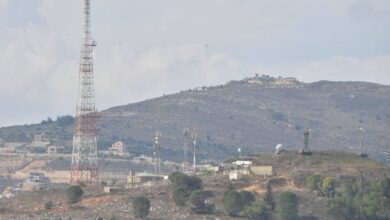Libya suspends foreign minister
Violent protests have broken out in Libya. It had previously become known that the foreign minister is said to have met with her Israeli counterpart - although the states have no official relations. The politician was suspended.

Libyan Foreign Minister Najla al-Mangussh has been “temporarily suspended” after an apparently unofficial meeting with her Israeli colleague Eli Cohen.
Libyan Prime Minister Abdul Hamid Dbaiba reportedly released his foreign minister from her duties on Sunday to investigate the case.
Libya and Israel have no official diplomatic relations. Libya does not recognize Israel, according to a law from 1957 contacts with Israel are punishable. The Libyan news site Al-Wasat, citing security circles, reported that the foreign minister had meanwhile flown to Turkey on a government plane.
Outbreak of violence in Tripoli
The announcement of the meeting triggered massive protests in Libya. The three-member Presidential Council, which represents the three regions of Libya, demanded “clarification” from the government, as reported by the Libyan television station al-Ahrar TV, citing a letter from council spokeswoman Najiwa Wheba.
Violent protests erupted in the streets of the capital, Tripoli. According to eyewitnesses, demonstrators set fire to tires and blocked roads. Demonstrators therefore demanded the resignation of the government of Dbaiba. A video circulated on the Internet is said to show people setting fire to Dbaiba’s residence. It is unclear whether the prime minister was in the building at the time. The information cannot be independently verified.
Libyan Foreign Ministry denies a meeting
The Foreign Ministry in Tripoli has denied talks with Cohen in Rome. The meeting in the Italian capital was just an “informal” and “unprepared” meeting. A statement from the ministry said it was categorically opposed to normalizing relations with Israel.
Earlier, Cohen’s office said he and his Libyan counterpart met in Rome last week. According to Israel, the conversation mediated by Italy was about “the great potential of the relationship between the two countries”. This is a “first step in relations between Israel and Libya,” said Cohen. “Libya’s size and strategic location present an immense opportunity for the State of Israel,” the statement said. Accordingly, the meeting took place under the patronage of Italian Foreign Minister Antonio Tajani.
Again and again contacts between the two countries
According to reports, there had been contacts between representatives of both countries before – albeit not at this high-level level. Almost two years ago, the Israeli media reported that the powerful General Chalifa Haftar, who was particularly influential in the east of the country and was running for president at the time, had sought military and diplomatic support in Israel. In return, he said he wanted to establish relations with Israel if he won the election. However, this never took place.
Civil war broke out in Libya after the fall of ruler Muammar al-Gaddafi in 2011. In the effectively divided country, two governments and several militias are struggling for power. A ceasefire came into effect in 2020. Occasionally, however, there are repeated cases of violence and clashes between hostile militias. Several foreign states, including Turkey and Russia, are involved in the conflict. All diplomatic efforts to resolve the conflict peacefully have so far failed.
Israel normalizes relations in the region
In September 2020, with US mediation, Israel agreed to establish diplomatic relations with the United Arab Emirates and Bahrain. Morocco and Sudan also announced such steps afterwards. Previously, only two Arab states, Egypt and Jordan, had relations with Israel.



